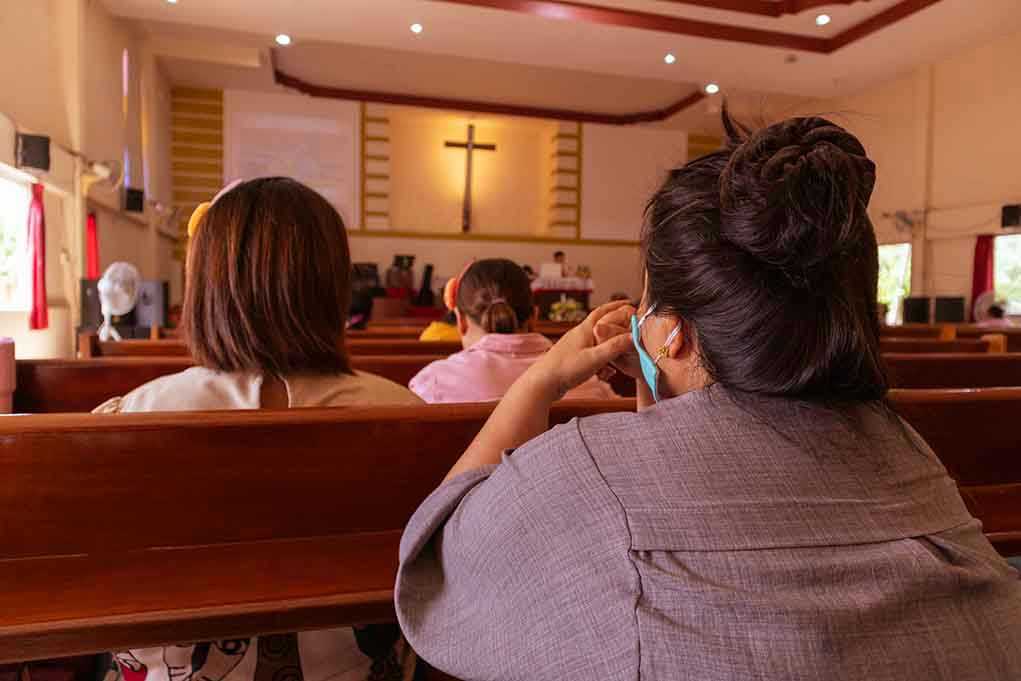
Churches across America can now endorse political candidates to their congregations from the pulpit—no, you’re not hallucinating, and yes, the IRS just made it official. Welcome to the new normal, where the separation of church and state gets blurrier by the day and the double standards in Washington reach new heights.
At a Glance
- The IRS struck a legal deal allowing churches to endorse political candidates to their own members without losing tax-exempt status.
- This settlement carves out an exception to the Johnson Amendment, which has banned such endorsements for 70 years.
- Skeptics warn this could turn churches into unregulated, taxpayer-subsidized political machines—while other nonprofits are still gagged.
- The move stops short of repealing the Johnson Amendment, but sets a precedent that could unravel the entire nonprofit sector’s nonpartisanship.
IRS Caves on Church Political Speech: The Johnson Amendment Gutted?
For decades, the so-called Johnson Amendment has been the scarecrow keeping churches and other nonprofits out of politics: no endorsing or opposing political candidates if you want to keep your tax-exempt status. That’s been the law since 1954, and the left has clung to it as the last line of defense against those pesky faith-based voters daring to influence elections. Now, thanks to a lawsuit brought by two Texas churches and the National Religious Broadcasters, the IRS has waved the white flag. As of July 7, 2025, the IRS settled, agreeing it will not enforce this ban on churches that endorse candidates or speak on elections during their own worship services. Not a word about repealing the law for everyone, just a sweet carve-out for churches—because nothing says “equal protection” like special deals for whoever sues loudest.
The IRS’s new stance? If a pastor wants to tell his flock exactly who to vote for, right from the pulpit, that’s now fair game under this deal. The only restriction: keep it “internal” to the congregation during services. Apparently, what’s preached on Sunday stays in the sanctuary, at least as far as the tax man cares. Suddenly, the very thing that had pastors biting their tongues for 70 years is now, according to the IRS, not a problem—at least for churches. If you’re a secular nonprofit or a charity, tough luck. The hypocrisy is enough to make anyone’s blood boil.
Winners, Losers, and a Whole Lot of Hypocrisy
Who’s cheering? Conservative religious groups and free speech advocates, who’ve argued for years that the Johnson Amendment trampled their First Amendment rights. They call it a victory for religious liberty and common sense. And let’s be clear: churches are finally allowed to speak to their own members about the issues and candidates that matter—something that should never have been up for debate in a country with a First Amendment. But the losers in this new IRS “interpretation”? Every other nonprofit in America. The National Council of Nonprofits and the Freedom From Religion Foundation are fuming, warning that this opens the floodgates for political money laundering through churches—tax-deductible, of course—while the rest of the nonprofit sector remains shackled. Double standard, anyone?
Nonprofit watchdogs warn this could turn houses of worship into unregulated super PACs—political action committees—funded by taxpayers who may not even agree with the church’s message. The IRS insists this is just a settlement for the suing churches, but everyone with half a brain knows this precedent will be cited nationwide the second any other church wants to get in on the action. The only thing standing in the way is a final court sign-off, but even the IRS seems to have lost its appetite for fighting faith-based plaintiffs. Funny how government agencies bend over backward when it suits their politics.
What’s Next: Erosion of Nonpartisanship and a Flood of Tax-Subsidized Politics
The implications are huge—and not just for churches. If this interpretation holds, the door is wide open for religious institutions to become the next big political money machine, all tax-free. Religious groups gain a megaphone; secular charities are left whispering. Expect the left to howl about the breakdown of “church-state separation,” but the real scandal is the selective enforcement and the government’s willingness to rewrite rules when it faces a tough lawsuit from the right kind of plaintiffs. Meanwhile, average Americans, already crushed by inflation and watching their tax dollars wasted at every turn, will get to subsidize political activity they may not support. Call it one more way Washington piles insult on injury.
Critics are already clamoring for Congress to step in, but after years of gridlock, don’t hold your breath. Ultimately, this IRS settlement isn’t just about churches or free speech—it’s about the slow death of equal treatment under the law. When the government picks winners and losers, we all lose. If the nonprofit sector’s reputation for public trust and nonpartisanship wasn’t already hanging by a thread, this may be the final cut. Welcome to America in 2025, where the rules are made up as we go, and the Constitution is just a suggestion.




